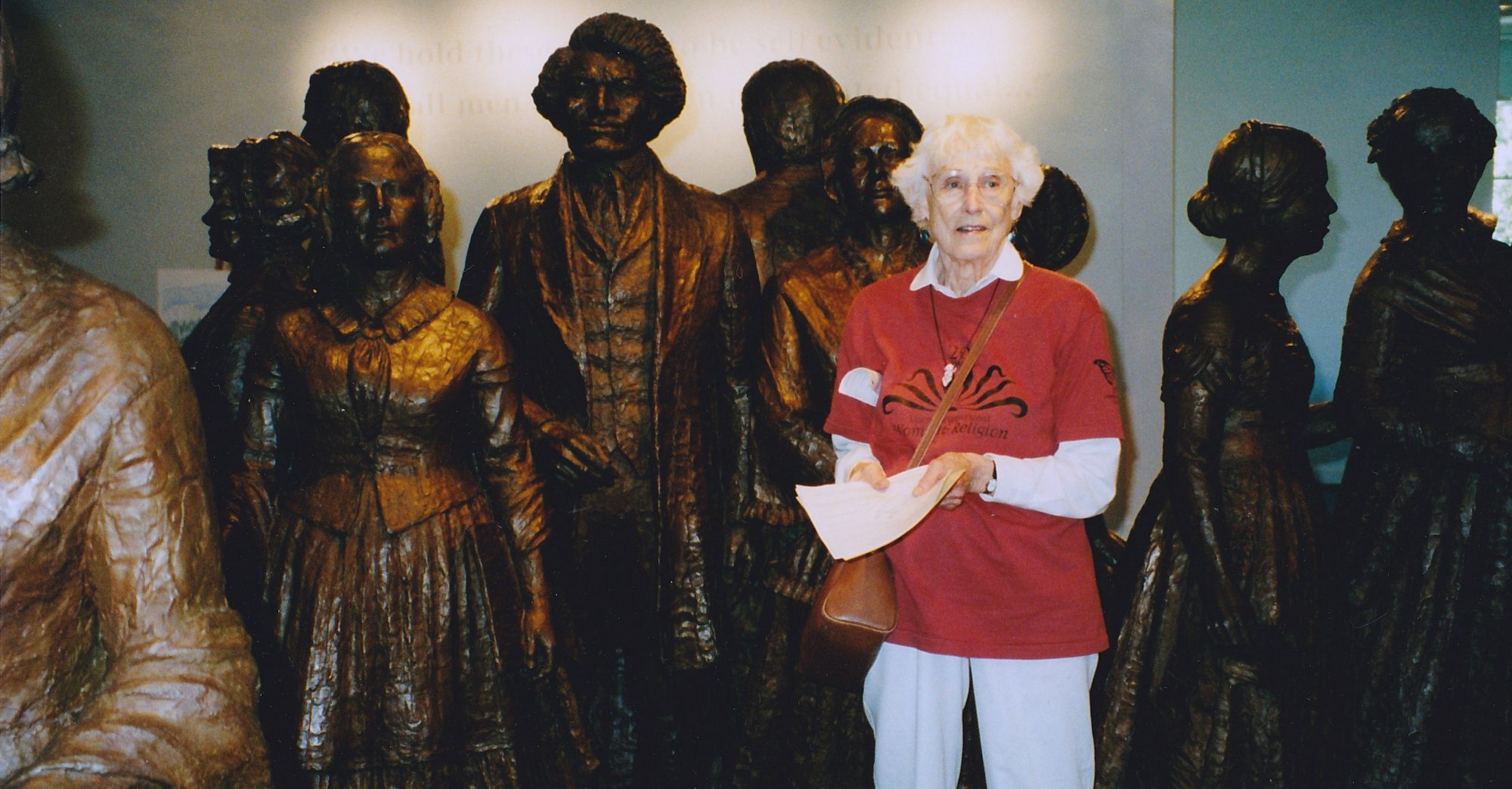SUMMARY: Delivered at the Theological Opportunity Program (TOP) at Harvard University, Lucile shares what her life has been like up until this point — reviewing her childhood, college years, young adult and married life. At that same time, her mother passed away and her children had moved away and started their own lives. Born in 1911, she lived through many changes in the role and opportunities for women. Widowed at the age of sixty-one, she quickly took on the commitment to be an outspoken advocate of the feminist perspective. Lucile’s self-revealing style and clear voice create an authentic picture of what those years for her were like.
“I’ve been asked to tell you my lifetime story.”
signed, Lucile Schuck — 3/18/1980
One Woman’s Story of Transition
Lucile says:
“I was sixty-one. The adjustments are endless. This late blooming sense of self is built on those very aspects of outsiderness that I have experienced in my life-time. I claimed my special abilities as a woman and as an elder. I also claimed my rural beginnings and my mind.
“After a time I began posting notes to myself:
Keep Pushing.
The Future is Now.
Don’t Count the Candles.
It’s a Condition of the Mind – If You Think You Can Fly, You Can.
Keep the Ego on the Move.”
Lucile ends this essay with these thoughts:
“New ways of perceiving are developing. Reality is being reconceptualized by those who historically have coped with life and relationship as outsiders. Reconceptualization is an endless undertaking but one that must go on side-by-side with the shorter-term adjustments we are forced to make.
“My current commitment is to do my best to seek and identify, in my own experience and that of others, the unclaimed strengths, the means of coping, that outsiders, those who attended the back–up systems of society, unknowingly share and bring that perspective into the larger view.
